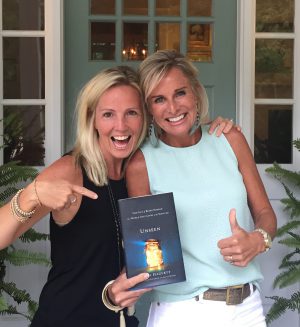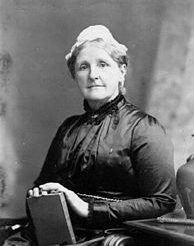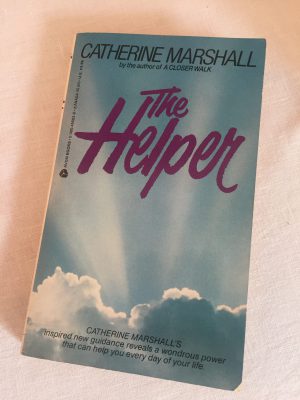Maybe you’ve heard about the woman who looked at God and said, “So far today, I’m doing all right. I have not gossiped, lost my temper, or told any white lies. I haven’t been greedy, nasty, or selfish. I have not whined or complained or cursed—not even once! And I haven’t charged anything on my credit card or eaten any gluten.
“But…I am going to be getting out of bed in a minute, and I think I will need your help.”
Can you relate? I know I can. When it comes to right living, we all need God’s help. Particularly since obedience—doing the right thing—is linked to living in the warmth of God’s love.
“If you keep my commands,” Jesus says in John 15:10, “you will remain in my love.”

Trouble is, obedience does not come naturally. Disobedience comes naturally. “I have the desire to do what is good,” Paul writes, “but I cannot carry it out.” We’d all be doomed, when it comes to desiring and doing the right thing, except for the fact that God knew we’d need help. And he gives it to us in the form of the Holy Spirit, our Helper.
What the Helper Does
If you’ve been following along in my Facebook or Instagram stories through Lent, you know we’ve been reading Catherine Marshall’s classic book, The Helper, which details forty different ways the Holy Spirit offers practical help in our lives. I’m linking the book in this post, but you might have to settle for a used copy; new ones are hard to come by (and cost waaaay more than the $3.95 I paid for mine, back in 1978).

The Helper does all sorts of valuable things, from reminding us what Jesus said, to equipping us with supernatural power, to guiding us in ways that save us worry and even time. He also (and this is where the ability to do the right thing comes in) gives us new desires. He doesn’t force them on us, of course, but as we entrust ourselves to the Holy Spirit’s keeping and care, he gives us (as Philippians 2:13 puts it), the “desire and the power to do what pleases him.”
I love that. Because honestly? We don’t always know what would please God. Plus, there are plenty of times when we might know the right thing to do but we just don’t want to. Or, like Paul, we might actually have the desire, but we lack the power, or the ability, to see whatever it is through to completion.
In her book, Catherine Marshall tells the story of her friend, Janet, who arrived in Washington, D.C. “deficient in taste and know-how.” Knowing that her friend needed help if she hoped to fit into the city’s sophisticated climate, Marshall connected Janet with a style maven who took her on, waiving the customary fee for her service, and ordered up a beautiful three-piece British tweed suit—something that the newcomer could feel confident wearing in almost any setting.
(Stick with me here. I know a three-piece suit—British or otherwise—might not be a “must have” today, but as a high-schooler in the 1970s who owned one made of royal blue polyester, I would have given anything to have some tweeds of my own.)
As Marshall tells the story, the suit arrived and Janet burst into tears. It was ridiculously expensive—and she wasn’t even sure she liked it! But then, as she wore it, a strange thing happened. She began to love the outfit, and her own taste started to change. “The purchase turned out to be one of the mainstays of Janet’s wardrobe for eight years,” Marshall writes. “The tweeds were not worn out even then.”
God knows what we should wear
Here’s the takeaway: When we submit ourselves to the Holy Spirit (just as Janet submitted her will to that of the big-city stylist), we allow him to go to work in our lives. He transforms us, as Romans 12:2 puts it, renewing our minds—changing the way we think—so we can know God’s will, which is good and pleasing and perfect.
And then, somewhere along the way, it hits us: Like a professional stylist, God knows better than we do what looks good on us. And when the Holy Spirit tells us what to wear—to “put on the new self, created to be like God in true righteousness and holiness”—we can trust that we will love the result. The Helper has impeccable taste.

❤️
I shared the story of Janet and the professional stylist in my book, Praying the Scriptures for Your Life. If you’d like to spend a few more minutes thinking through how the Holy Spirit can work to give you the desire and the power to do what pleases God, here is a brief excerpt from the “Reflect” section at the end of that chapter, along with a few prayers you can pray:
- God’s commands are always designed for our benefit; they are motivated by love. Likewise, our obedience is born out of relationship, not obligation. Our connection to Christ creates our desire to obey—and it is through obedience that we abide in Christ’s love.
- Still, though, obedience can be hard. Don’t be afraid to ask the Holy Spirit for help, knowing that your humility acts as a magnet for God’s grace. And remember: God will never give you a command that he doesn’t also give you the power to fulfill. The same power that raised Christ from the dead is at work in your life today.
- Take a few moments to reflect on what that resurrection power can accomplish in your life. Dry, dead places can become fertile ground; sin’s chains can be broken; radiance can replace shame. Ask God to open your eyes to the beauty of his commands as you surrender yourself to his keeping, trusting the Holy Spirit to give you both the desire and the power to do what pleases God.
Heavenly Father…
Work in me to will and to act to fulfill your good purpose. (Philippians 2:13)
Create in me a clean heart. Restore the joy of my salvation and make me willing to obey you. (Psalm 51:10-12 NLT)
Don’t let me be arrogant and stiff-necked, refusing to obey your commands. May I listen to you, knowing that you are gracious and compassionate towards me, slow to anger and abounding in love. (Nehemiah 9:16-17)





















